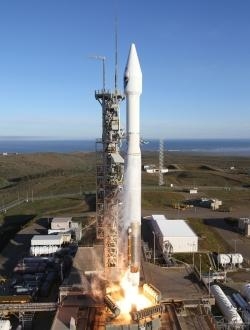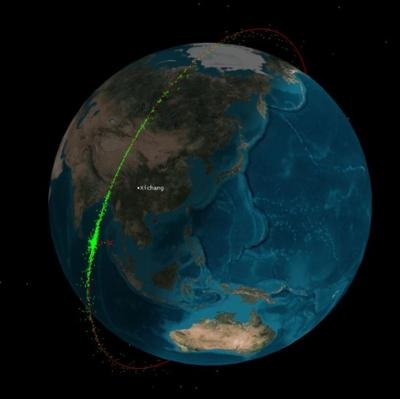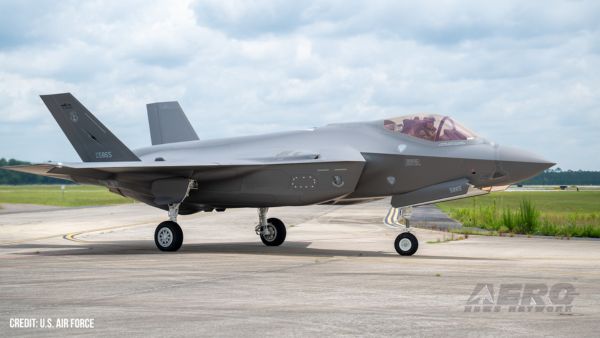Sun, Jul 13, 2025
Back-and-Forth Between Bureaucrats Beats Back Budgetary Blow
An open letter to the Trump administration was posted in the hopes of supporting one of its first-term projects on the chopping block, bringing together a bevy of space businesses in support of the Traffic Coordination System for Space (TraCSS).

TraCSS was developed by the NOAA’s Office of Space Commerce in the hopes of preventing future satellite collisions, entering into beta testing last fall. The program is young, and therefore on the chopping block in the FY2026 budget request. The Senate Appropriations Committee will mark up the Commerce-Justice-Science (CJS) bill with NOAA's funding this week, and it’s setting commercial satellite operators on edge. Traditionally, the Department of Defense provided satellite track data, but the task has grown as quickly as the space launch industry–and DOD wants a civilian agency to take on the headache.
Funny enough, the TraCSS system has its roots in the first Trump term, when he assigned it to the Department of Commerce under Space Policy Directive-3. From there it trickled down through the NOAA into a handful of acronyms under their umbrella, ideally culminating in a basic tier of free services for essential spacecraft tracking buttressed by premium options for commercial entities. But the current administration has less interest in the service today, claiming private industry can handle similar services using DOD data. That has brought out 7 industry groups representing more than 450 space entities in the hopes of forestalling the defunding, writing to Congress and the Senate.
“One of OSC’s most important functions is to provide space traffic coordination support to U.S. satellite operators, similar to the Federal Aviation Administration’s role in air traffic control for the U.S. airline industry. Helping the U.S. space industry operate safely in an increasingly congested space domain ensures space-based services like broadband internet and weather forecasting are available to the American people. Likewise, a safe space operating environment is vital for continuity of national security space missions such as early warning of missile attacks on deployed U.S. military forces. Without funding for space traffic coordination, U.S. commercial and government satellite operators would face greater risks – putting critical missions in harm’s way.”

“Moreover, failure to fund OSC adequately risks reverting the space traffic coordination mission to the Department of Defense despite longstanding U.S. policy favoring civil oversight. Successive administrations have recognized on a bipartisan basis that space traffic coordination is a global, commercial-facing function best managed by a civilian agency. Keeping space traffic coordination within the Department of Commerce preserves military resources for core defense missions and prevents the conflation of space safety with military control – critical to U.S. leadership in setting international standards and norms for space activities.”
“At a time when the United States is facing increasing competition from many corners of the globe, OSC is an invaluable partner to the U.S. space industry. Providing sufficient funding in Fiscal Year 2026 will allow OSC to continue supporting the competitiveness of the U.S. space industry as both the market landscape and orbital environment become increasingly crowded. Industry looks forward to continuing to work with OSC on optimizing its provision of space traffic coordination support to maximize utility for satellite operators and leverage innovation from the private sector.”
More News
Aero Linx: The American Society of Aerospace Medicine Specialists (ASAMS) The Society is a non-profit organization created to serve as a voice for and represent the professional ne>[...]
Class C Service This service provides, in addition to basic radar service, approved separation between IFR and VFR aircraft, and sequencing of VFR aircraft, and sequencing of VFR a>[...]
Have A Story That NEEDS To Be Featured On Aero-News? Here’s How To Submit A Story To Our Team Some of the greatest new stories ANN has ever covered have been submitted by our>[...]
Also: ERAU Uses UAVs, P550 Group 2 UAS, Starship’s Florida Launches, NASA Missions Chopped The Air Force has put out a call to commission a one-to-one copy of the Iranian-des>[...]
Classic Klyde Morris From 11.07.16 (and Remembering Bob...) FMI: www.klydemorris.com>[...]
 ANN's Daily Aero-Linx (08.27.25)
ANN's Daily Aero-Linx (08.27.25) ANN's Daily Aero-Term (08.27.25): Class C Service
ANN's Daily Aero-Term (08.27.25): Class C Service ANN FAQ: Submit a News Story!
ANN FAQ: Submit a News Story! Airborne-NextGen 08.26.25: Iran UAV Knockoffs, X-37B Spaceplane, Army Training
Airborne-NextGen 08.26.25: Iran UAV Knockoffs, X-37B Spaceplane, Army Training Classic Klyde Morris (08.25.25)
Classic Klyde Morris (08.25.25)




